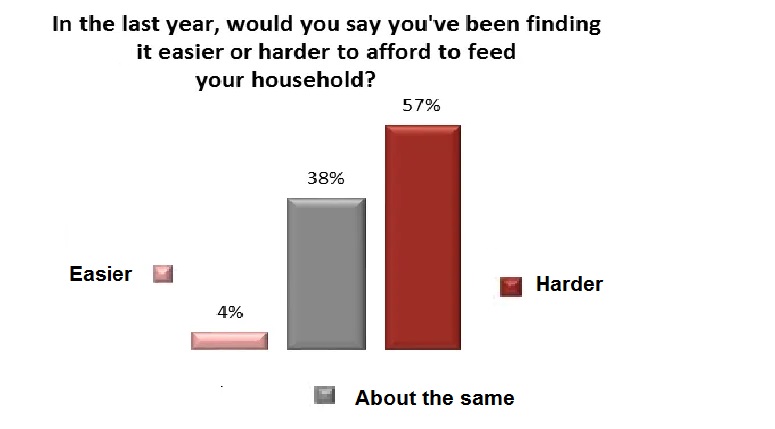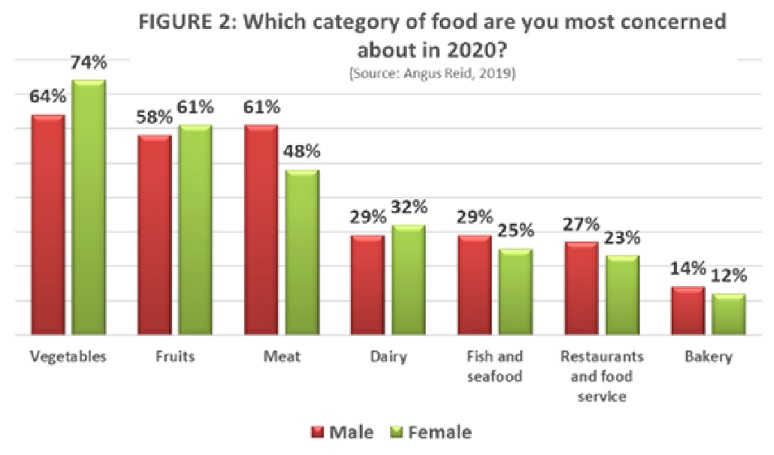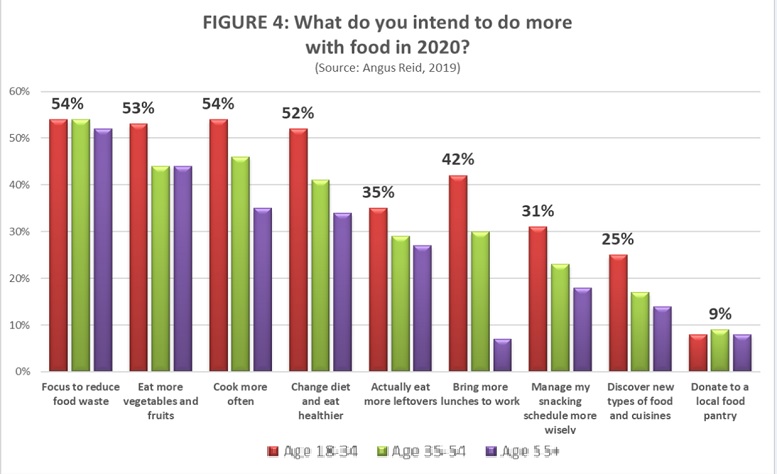An end of year survey by Dalhousie University of Halifax shows some 87 per cent of Canadians feel food costs are rising faster than incomes.
The Agri-Food Analytics Lab at Dalhousie University together with the polling firm Angus Reid Institute, conducted the cross Canada survey.
It’s part of a study called “Canada’s Food Guide Report: 10th Edition” which was produced along with the University of Guelph. The study says the average increase will cost a family of four by about $500 next year.

Angus Reid Institute 2019
The survey revealed some surprising results. A press release noted, “94% of Canadians with a high school diploma believe they are falling behind in their ability to pay for food; among those with a university degree, 78% are concerned about food affordability. Of those earning less than $50k per annum, 92% are concerned about food affordability, while 83% of Canadians earning more than $100k feel food prices are rising faster than their household income.”
This shows that the concern about food costs is widespread across all levels of society.
It also appears Canadians are most concerned about the increasing prices for fresh vegetables, which statistics show rose about 15 percent this year. Increasing fruit prices were the second area of concern, followed by increasing meat prices.

The survey showed a slim majority (53%) intend to change their food shopping habits in 2020. Some 48 per cent will make a greater effort to seek grocery store discounts and use discount coupons more, 41 per cent will try to buy in bulk more often, and 31 per cent will try to eat less meat and more plant-based foods.

Restaurants may feel the pinch as well with 60 per cent of Canadians saying they’ll eat out less often. This would seem to coincide with another question which showed 44 per cent intended to cook more often at home, while another 25 per cent said they’d bring lunches to work more often.
One of the main efforts expressed by all to reduce their food bill is to try to reduce food waste (54%).







For reasons beyond our control, and for an undetermined period of time, our comment section is now closed. However, our social networks remain open to your contributions.